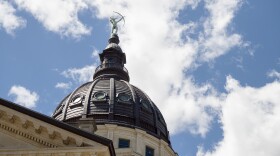
The Kansas Supreme Court has ruled that a grand jury must be convened to investigate a charge that Secretary of State and Republican gubernatorial candidate Kris Kobach intentionally failed to register voters in 2016 by choosing not to process online voter registrations, which likely prevented qualified residents from voting in the 2016 election.
Kobach has been viewed as a leading advocate of stricter voter ID laws.
Donald Trump, who has been an ally of Kobach, argued after the 2016 election that he, and not Hillary Clinton, had won the popular vote, asserting without evidence that three to five million people voted illegally. Kobach said that Trump was “absolutely correct.” Kobach was one of the reasons Trump created the now inactive Presidential Advisory Commission on Election Integrity and made Kobach the de facto leader.
The media organization ProPublica investigated the election and found no evidence of fraud.
We should be on the alert for stricter ID laws for voting, which can affect most adversely low-income minority voters, who are overwhelmingly Democratic voters.
ID laws usually require a government-issued photo ID. The Brennan Center for Justice estimates that 21 million, or 11 percent, of eligible voters do not possess such identification, and that among African American citizens, the figure is 25 percent.
Seven of the 11 states with the highest black turnout in 2008 adopted stricter ID laws. Nine of the 12 states with the largest Hispanic growth between 2000 and 2010 passed laws making it harder to vote.
Even if these laws have only a modest effect on voter turnout, they can be decisive in close elections such as we had in the Kansas Republican primary for governor in August.
Copyright 2018 KMUW | NPR for Wichita








